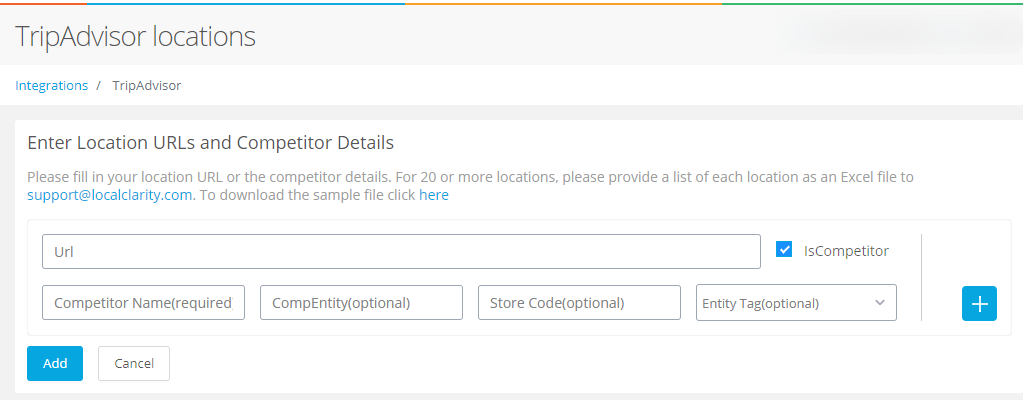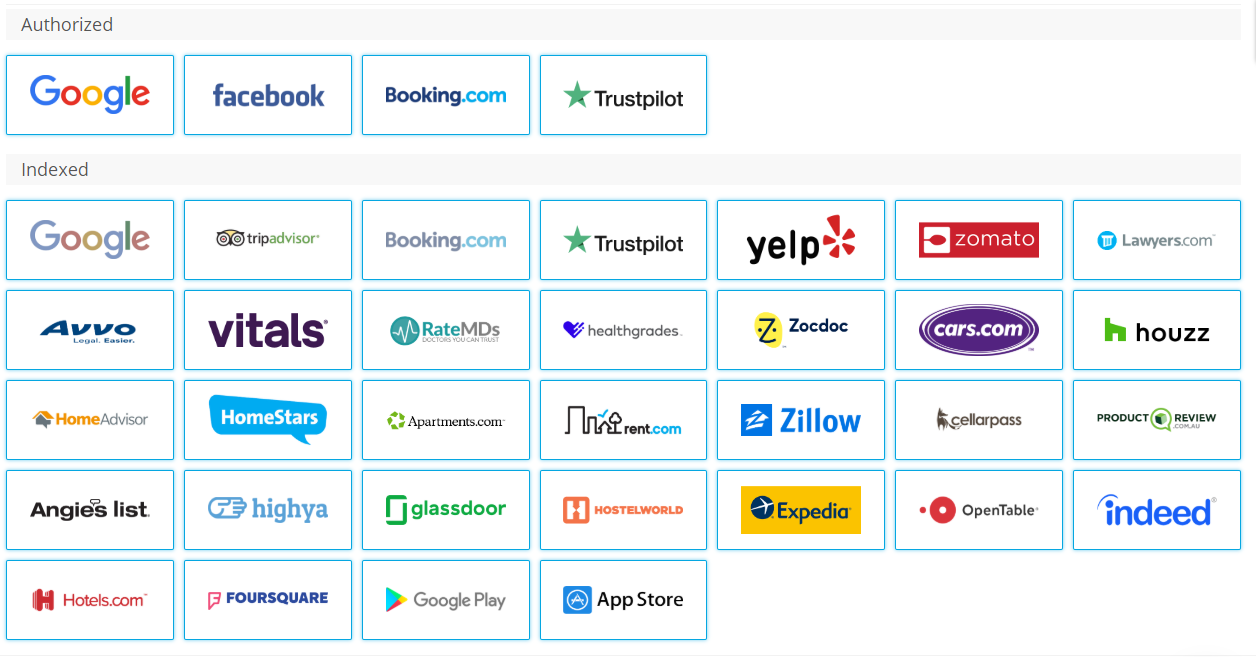Facebook Listings Management
We are very excited to make available direct Facebook listing management for all accounts. Leveraging our new “Spreadsheet UI”, we are making it as simple as:
- In the Bulk Management section, auto-populate a sheet with your authorized Facebook account data.
- Make all necessary edits directly in the sheet, taking advantage of all regular spreadsheet tools.
- Publish the edits directly to Facebook.
As a reminder, the Bulk Management section has five sections:
Control
The central control panel for new bulk-management functionality. As we build out more controls, details will be presented in this tab. Please see the warning messages before starting to use this section.
Platform
Control the LocalClarity platform variables to more easily manage accounts at scale. Everything from creating “Friendly Names” and entity tags to assigning location contact managers.
GMB Details
Access/Edit all eligible variables for each location (with the exception of the attributes list). Users can quickly filter to the right location(s) and make the edits. Click the Update button and the details of any edited field are pushed directly to Google.
GMB Attributes
To keep the primary GMB Details sheet responsive, we have segregated control of attribute assignment to a distinct sheet. Google My Business currently supports over 200 attribute types, each connected to specific primary categories.
Facebook
Access/Edit all the core Facebook variables for each location. When you are finished with the updates, click the update button and the details of any edited field are pushed directly to Facebook.
Instructions
Coming soon – instructional videos, best practices, error handling procedures, and roadmap items.
History
Track the success of each update push to confirm execution and check for any errors.
You can explore the new tools at Bulk Management. It is our goal to provide full and direct local listing control for The Big Four (Google, Facebook, Apple, and Bing) this Summer.
New Review KPIs
In order to measure the relative and absolute engagement of reviewing customers, we have added three new KPIs to the main Review Dashboard.
Think about your own personal experiences. How much brand loyalty are you expressing when you simply click 5-stars and submit, versus taking the time to craft a raving, 60-word commentary about your exceptional experience. Which of these two provides a better indication of customer loyalty to the brand and a more effective public testament?
Comment Ratio
The percent of reviews, by star rating and in total, with and without comments. The higher the comment ratio, the greater the level of overall engagement customers have with the brand. A warning sign would be a low ratio for positive reviews and a high ratio for negative reviews. Even with a strong average star rating, this would indicate the brand has few raving fans and many active detractors.
Comment Length
This metric adds to the story of the Comment Ratio in demonstrating how many words are used to express their feedback. While it’ typical to see more lengthy descriptions in negative reviews, brands with limited commentary in positive reviews will have a hard time attracting new customers who take the time to read reviews.
Word Ratio
This treemap graph combines the two prior elements into a simple concept of the percent of all words shared in review comments by rating. A strong result is half of all customer feedback comments contained within 5-Star reviews.
Please let us know if you would like to discuss how your engagement metrics compare to your industry.
Competitor Review Uploads
The first step in being able to monitor and analyze competitor reviews is to add the competing location’s review sources to the LocalClarity platform. We have updated all of the integration pages to now present the option to mark a location as a competitor. Doing so triggers a new menu of items that will help users compare location performance at multiple levels.
Competitor Name
The distinct brand name that will be used for all reporting. Multiple locations from a single competitor will be rolled-up on this name.
CompEntity
This is a free-form tag that can be assigned to any competitor location to create a distinct grouping. Examples might be distinct aspects that cost competitors such as “urban”, “rural”, “primary”, “secondary”, “new locations”, etc.
StoreCode
This is the StoreCode of your location so that you can evaluate direct comparisons at the individual location level.
EntityTag
This is the existing entity-tag from your locations so that you can make comparisons by distinct groups.
The reviews from any newly assigned competitors will be available in the new reporting dashboard in the next two weeks.
White Label Control
As a reminder, we have made even greater customization controls available to our white label partners. Partners can now set the left and top navigation color schemes, as well as the images that power the domain-level login and signup pages. Users can play with various color schemes and preview the results before setting the application colors.
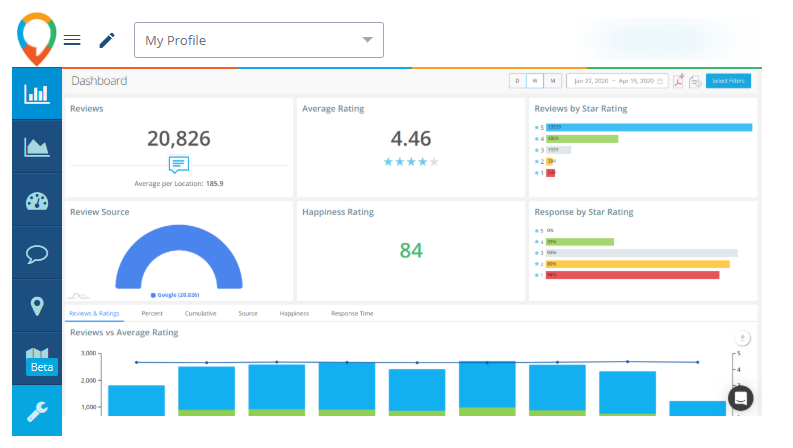
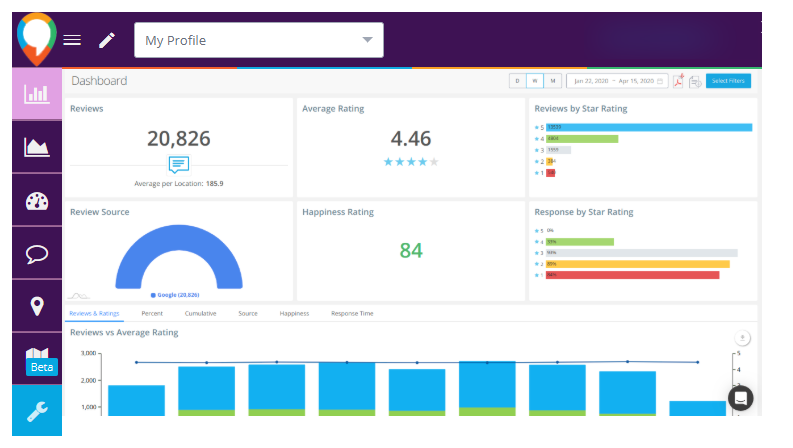
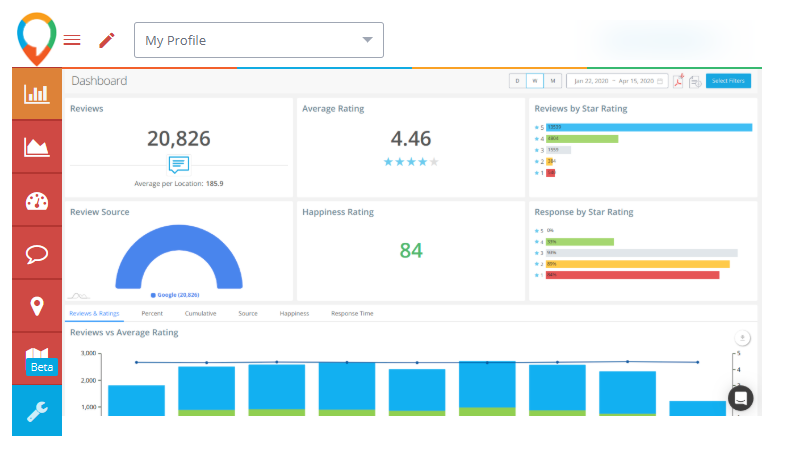
Competitor Review Sources
The integration page has been updated so that nearly all of the sources can be used to assign competing locations.
For Google Indexed reviews, you will need the Google PlaceID. The balance of the sources simply needs the location URL.
QOL Updates
Smaller, quality-of-life updates we hope users will appreciate.
Templates vs Saved Replies
As part of our larger effort to refresh the workflow of the ReviewsInbox, we have created a new folder to hold all of the generic response templates. Whenever a generic response is updated, it is now placed into the profile’s Saved Replies folder.
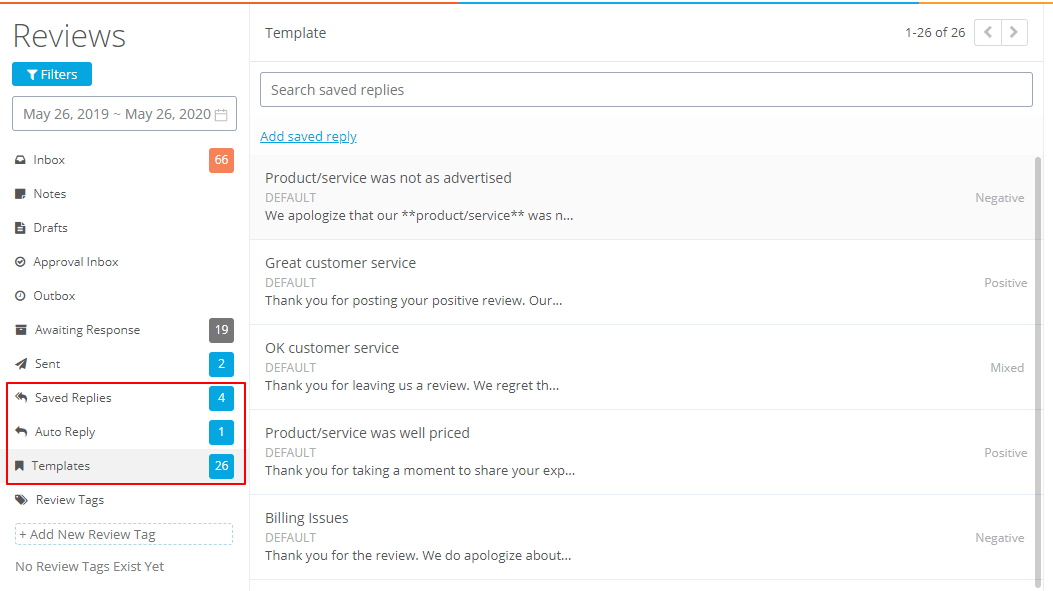
In June we will be refreshing several aspects of the review/response workflow to make it easier for both new and power users to manage customer feedback at any scale.
As always, please let us know if you have questions about these enhancements or if you have a suggestion.



